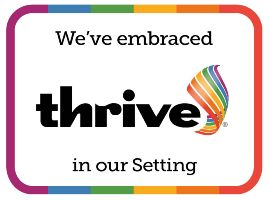Parent/Carer Workshop Feedback
The importance of play
This parent/carer workshop took place on the 10th October 2018.
A child who does not play is not a child
By Pablo Nuruda
What is Play?
Play is at the very centre of a healthy child’s life. From the earliest age, playing helps children to learn, to relate to other people and to have fun.
Why is play important?
- Play is essential for healthy brain development
- It is through play that children engage and interact with the world around them. Toys are fun but they are essential tools for children to learn and develop
- It is through play that children engage and interact with the world around them. Toys are fun but they are essential tools for children to learn and develop
- Teaches life skills
- Promotes social skills - like sharing
- Alleviates stress
- Is a form of communication
- An outlet for feelings and emotions
- Builds imagination
Stages of Social Play
- Unoccupied play: the most basic play
- Solitary play: starts in infancy and common in toddlers
- Onlooker play: most frequently In toddler years
- Parallel play: playing side by side
- Associative play: ages 3-4 years
- Social play: begin to share ideas and toys
Types of play
- Physical
- Communication and Language
- Understanding of the world
- Personal Social and emotional
- Expressive arts and design
- Exploratory
- Physical development
- Literacy
- Mathematics
- Expressive arts and design
Child-led play
- Make sure there is unstructured time for your child to play
- When safe let your child make their own judgements and decisions in play
- Join in play when invited or ask before you join in but let the child be in charge of the play
- Let your child be creative
Make jobs fun!
- Cleaning, can they help? Or give them their own cleaning set
- Cooking – give them a role
- Writing a shopping list- give them pen and paper
- Shopping - get them to help you find what you need, tick sheet
- Make what you are doing fun as possible and talk about everything you are doing to engage your child



